The allure of turquoise waters, sun-soaked beaches, and vibrant Bahamian culture has drawn countless travelers on a cruise adventure to this Caribbean paradise.
But before you set sail, there’s a pressing question to address: “Do I need a passport for this voyage?” Ensuring you have the right documentation can be the difference between embarking on a carefree journey and facing unexpected hiccups.

Basic Travel Requirements
Before embarking on any international adventure, it’s paramount to grasp the intricacies of travel documentation.
Understanding these fundamentals will make answering the question, “do you need a passport to cruise to the Bahamas?” much clearer.
The ABCs of International Travel Documentation
At the heart of every journey across borders lie essential travel documents. Let’s break them down:
Passports
Often, the first document that comes to mind when thinking of international travel, a passport is an official government document that certifies your identity and citizenship.
It’s essentially your global ID card, granting you permission to enter and leave foreign territories. When people ask, “do you need a passport to cruise to the Bahamas?” they’re often thinking of this little booklet.
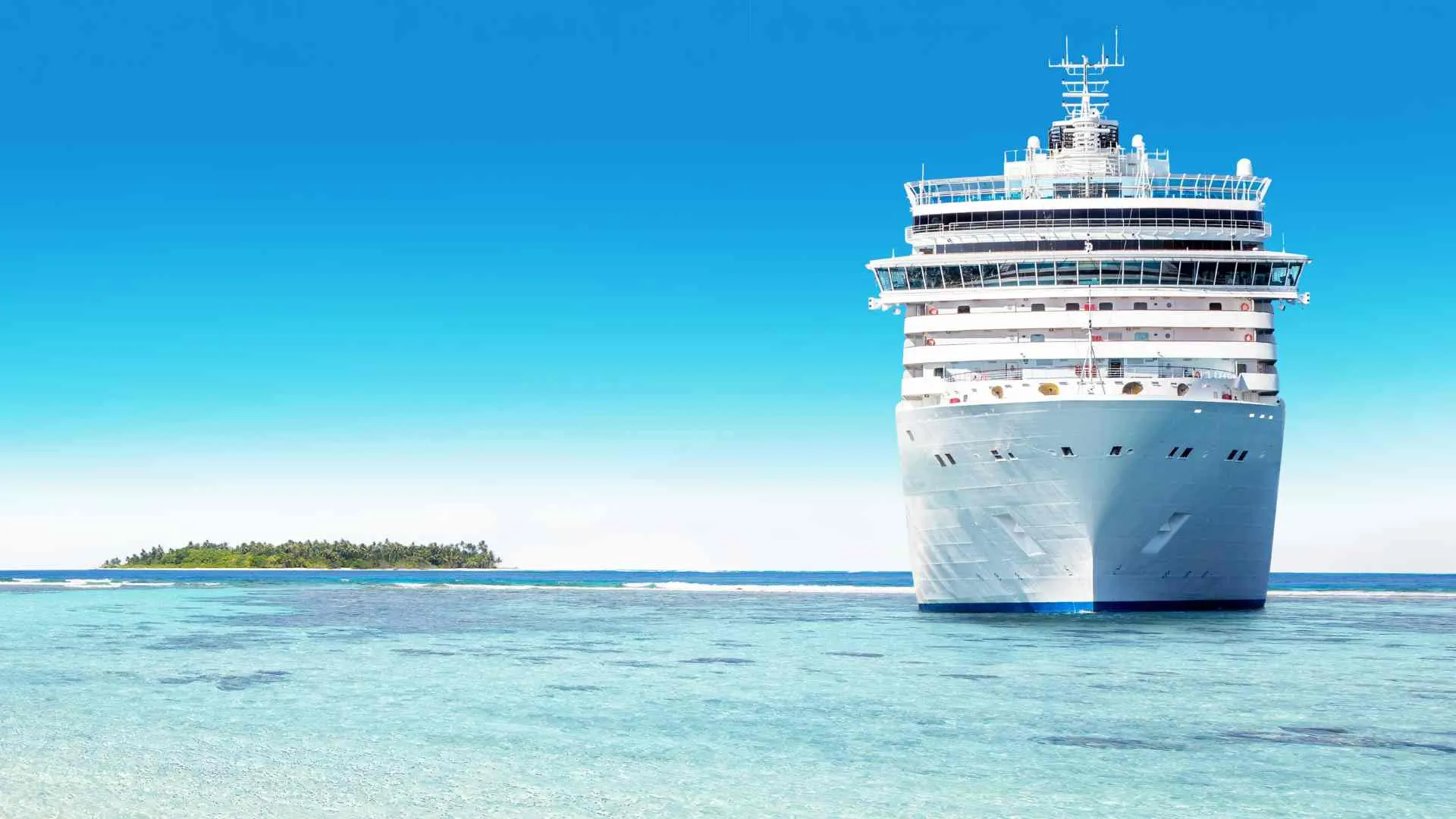
Visas
A visa is an official stamp or endorsement placed within a passport, allowing the holder to enter, leave, or stay in a specific country for a predetermined period.
Depending on the nature of your visit and the country in question, different visa types might be required.
Other Travel Documents
In some scenarios, additional documents like travel insurance, vaccination records, or special permits may be necessary.
While they may not directly answer the “do you need a passport to cruise to the Bahamas?” question, they’re worth noting, especially for more extensive travel itineraries.

Differentiating Between Passport, Visa, and Other Documents
While the primary focus of our discussion is understanding if one needs a passport to cruise to the Bahamas, it’s worth noting the difference between these documents:
- Passport: Proves your identity and citizenship.
- Visa: Grants permission to stay in a specific country for a particular purpose and duration.
- Other Documents: These can range from health-related certificates to special permits depending on the nature of your visit.
Understanding these distinctions can save a lot of hassle and confusion when planning any international voyage, not just a cruise to the Bahamas.
In this section, we’ve laid the groundwork for our deep dive into the specifics of Bahamian cruises.
By familiarizing ourselves with the basics of international travel documentation, we’re better equipped to address the all-important question: “do you need a passport to cruise to the Bahamas?”

Cruising Specifics
Cruising to the Bahamas is a sought-after experience for many, encapsulating the essence of the Caribbean with its aqua-blue waters, white sandy beaches, and laid-back island vibes.
Before we delve deeper into the pressing issue of “do you need a passport to cruise to the Bahamas?”, it’s important to understand some specific details related to cruising itself.
Why the Bahamas is a Prime Cruising Destination
The Bahamas isn’t just a random choice for cruisers. Its strategic location, combined with its unparalleled beauty and rich culture, makes it a top pick for those looking to sail the Caribbean waters.
Proximity to Major Ports
One of the reasons many ask, “do you need a passport to cruise to the Bahamas?” is because of its close proximity to major U.S. ports, especially in Florida.
Miami, Fort Lauderdale, and Port Canaveral serve as key departure points, offering short trips to the Bahamas, making it a popular weekend getaway choice.

The Allure of Bahamian Attractions
From the vibrant streets of Nassau to the tranquil beaches of Freeport and the exclusive resorts on private islands like CocoCay and Castaway Cay, the Bahamas offers a plethora of experiences for every traveler.
Its diverse attractions often lead travelers to inquire about the requirements, particularly “do you need a passport to cruise to the Bahamas?”, to ensure they’re prepared.
Closed Loop Cruises vs. Regular Cruises
Understanding the type of cruise you’re embarking on is vital. Closed loop cruises, which start and end at the same U.S. port, often have different documentation requirements than other cruises, leading many to wonder, “do you need a passport to cruise to the Bahamas if it’s a closed loop?”
Duration and Destinations
The duration of your cruise and the destinations on your itinerary can influence your travel documentation requirements.
For example, a cruise that has multiple international stops might have different passport and visa requirements than one that solely ventures to the Bahamas.
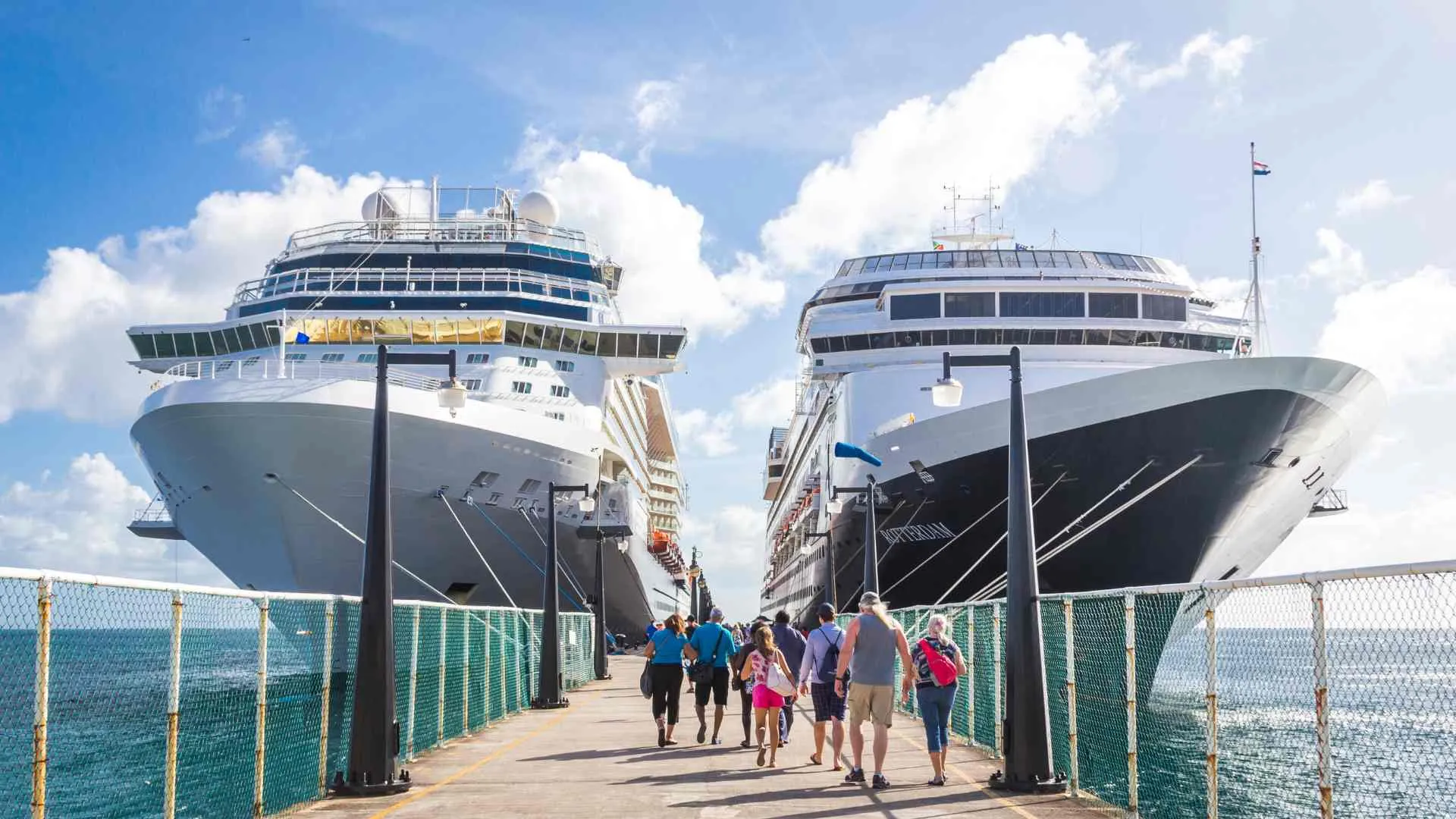
Cruise Lines and Their Individual Policies
Remember, cruise lines often have their own sets of policies when it comes to required documentation. While international laws provide a foundation, individual cruise lines may have stricter requirements.
It’s always recommended to check directly with your chosen cruise line when seeking answers to “do you need a passport to cruise to the Bahamas?”
By understanding these cruising specifics, you’re not only gearing up for an informed and hassle-free journey but also setting the stage to address our primary question with more clarity.
The nuances of cruise types, destinations, and individual cruise line policies play a significant role in determining the answer to “do you need a passport to cruise to the Bahamas?”

The Closed Loop Cruise Exception
The world of cruising has its unique set of rules, and when it comes to passport requirements, there’s a special term that frequently pops up: the “closed loop cruise.”
It’s paramount for travelers, especially those pondering, “do you need a passport to cruise to the Bahamas?”, to be acquainted with this exception and its implications.
What is a Closed Loop Cruise?
In the simplest terms, a closed loop cruise is one that begins and ends at the same U.S. port. This could mean you start your journey in Miami, sail to the Bahamas or other destinations, but ultimately return to Miami to disembark.
How This Affects Bahamian Cruises
Many cruises to the Bahamas, given the islands’ proximity to the U.S. mainland, are short, weekend getaways that qualify as closed loop cruises.
This has a direct impact on the documentation requirements, leading many to ask, “do you need a passport to cruise to the Bahamas on such trips?”

The Flexibility and Limitations of the Closed Loop Exception
While the closed loop exception does provide some flexibility regarding passport requirements, relying solely on it comes with its own set of risks and limitations.
Traveling with Alternative Documentation
For closed loop cruises, U.S. citizens can often use alternative documentation, such as a government-issued birth certificate combined with a government-issued photo ID.
This can be convenient for those who may not have a passport on hand. However, this doesn’t necessarily mean you can disembark in the Bahamas or other foreign ports without a passport; it simply means you can re-enter the U.S. at the end of your cruise.
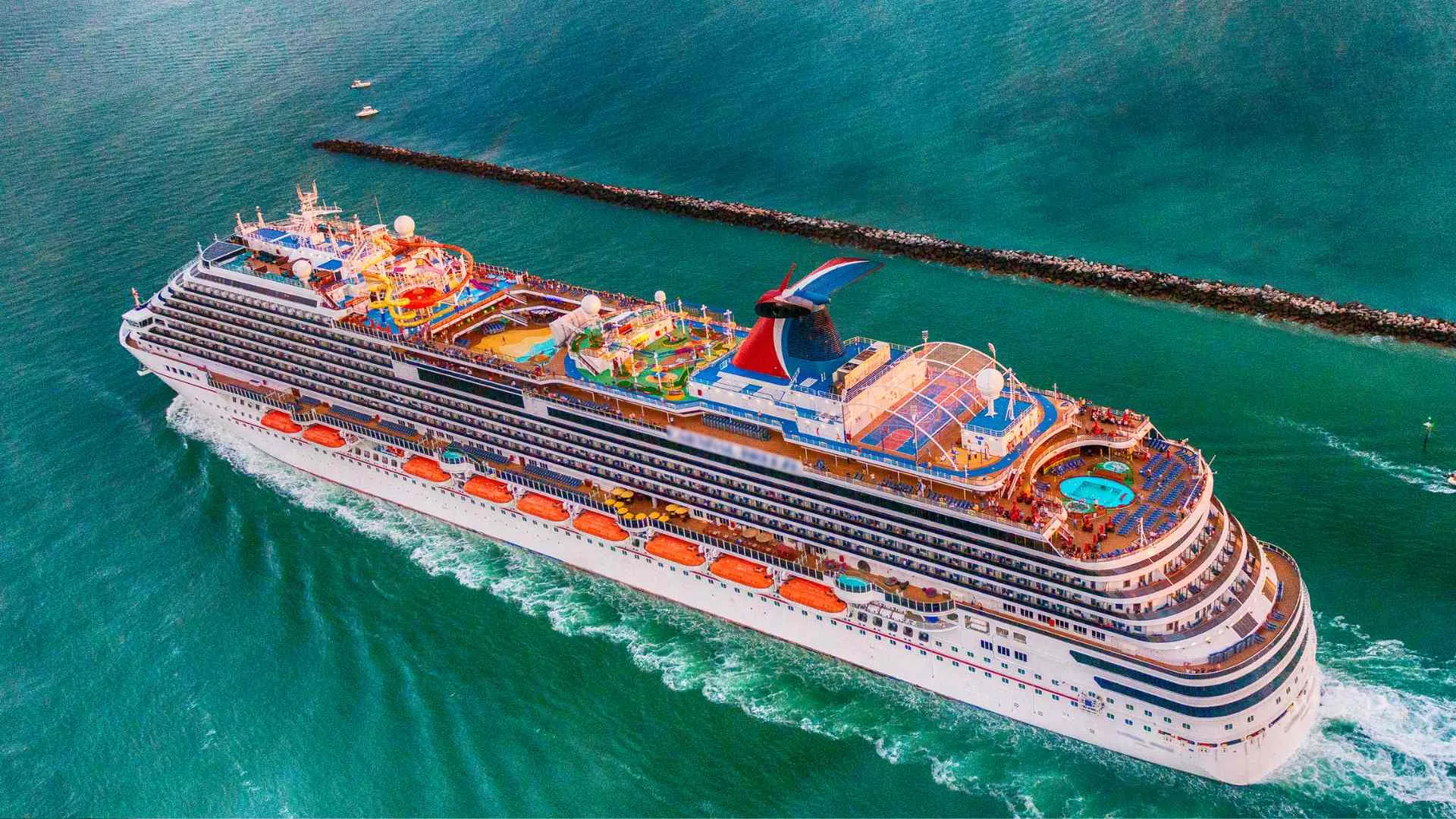
The Risks of Solely Relying on this Exception
Imagine facing an emergency that requires you to fly back home from the Bahamas, or perhaps you miss your cruise departure and need an alternate way back. In such scenarios, not having a passport can complicate matters greatly.
This underscores the importance of understanding the risks before banking solely on the closed loop exception when addressing “do you need a passport to cruise to the Bahamas?”
Recommendations for Travelers
While the closed loop exception provides some leeway, it’s always recommended to travel with a valid passport, even if it’s not mandatory. The peace of mind, flexibility, and preparation for unforeseen circumstances far outweigh the convenience of traveling without one.
The closed loop cruise exception introduces a layer of complexity to the discussion of whether or not you need a passport to cruise to the Bahamas.
While it offers an avenue for those without a passport, it’s crucial to weigh the benefits against the potential challenges that might arise during your journey.

Benefits of Having a Passport
In the modern age of travel, a passport is more than just a travel document; it’s a key that unlocks numerous doors, providing a realm of possibilities and conveniences.
While the question, “do you need a passport to cruise to the Bahamas?” might seem straightforward, understanding the broader benefits of possessing a passport can offer a more holistic view of its importance.
Ease of Travel in Unexpected Scenarios
Life can be unpredictable, especially when traveling. Having a passport ensures you’re prepared for a myriad of situations:
Missed Ship or Emergency Return
Imagine the unfortunate event where you miss your ship’s departure from a Bahamian port. With a passport in hand, you have the flexibility to fly back to the U.S. or another desired destination.
Similarly, emergencies might require an unplanned return home; a passport ensures you face no hindrances.
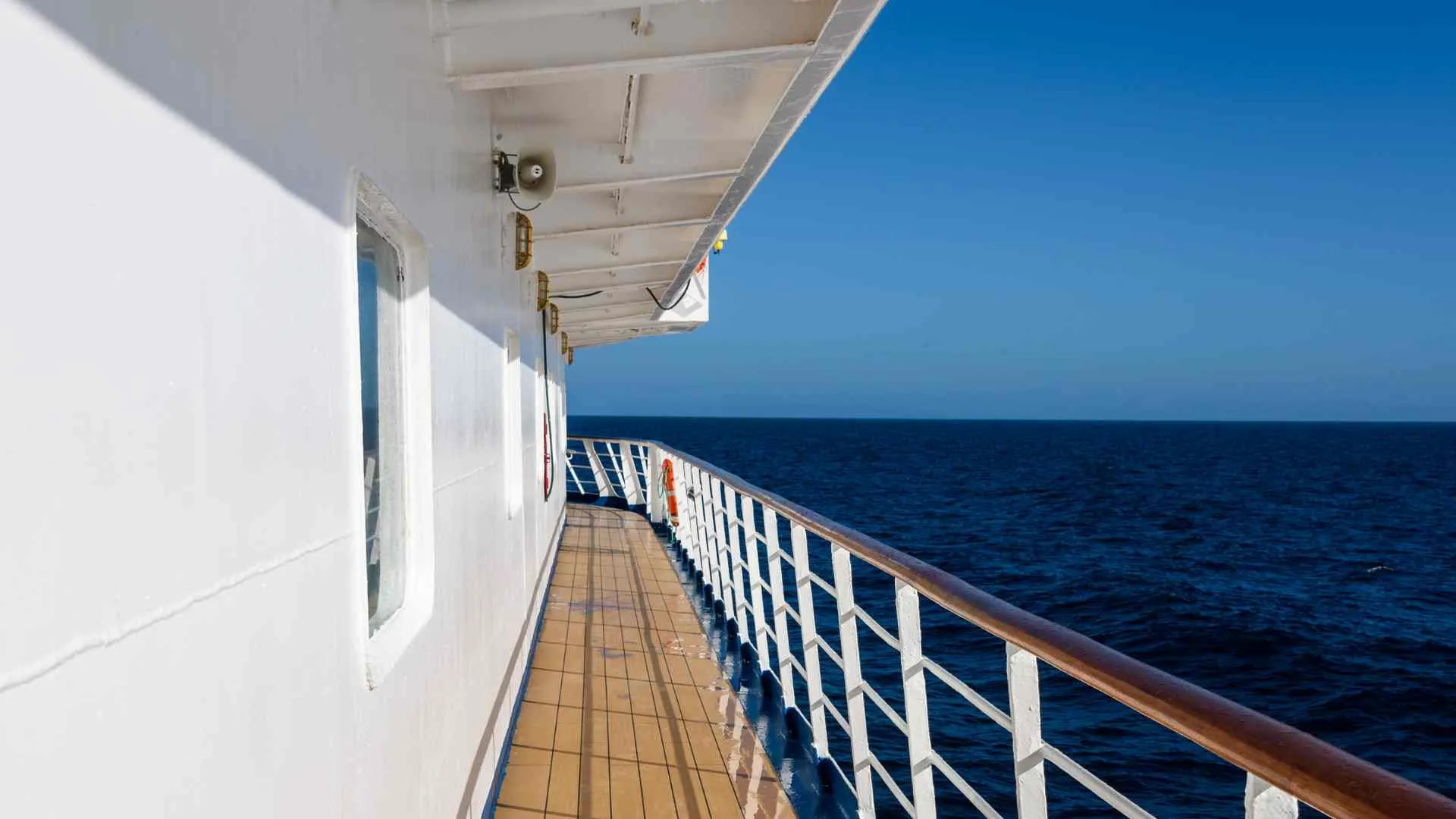
Diversifying Your Itinerary
While you might have boarded the cruise with a particular itinerary in mind, travel plans can change. New destinations might become appealing, or certain ports might become inaccessible due to unforeseen circumstances.
Having a passport provides the flexibility to adapt to these changes without hassle.
Flexibility in Travel Plans
A passport doesn’t just serve the immediate journey. It’s a gateway to spontaneous adventures:
Exploring Beyond the Bahamas
The Caribbean is a mosaic of islands, each with its unique charm. While your initial plan might be limited to the Bahamas, with a passport, you’re always ready for an impromptu detour to another Caribbean paradise.
Longer Stays and Extended Adventures
Fell in love with the Bahamian sunset and wish to stay a tad longer? A passport allows you to disembark, extend your stay, and then choose an alternative mode of return, ensuring your travel decisions remain unrestricted.

Preparation for Future International Travel
Obtaining a passport is an investment in your future travel endeavors. It’s valid for ten years for adults, setting you up for a decade of global adventures.
Each time you wonder, “do I need a passport to visit this place?”, you’ll be one step ahead, ready to pack and go.
Added Identification Security
A passport is an internationally recognized form of identification. Whether you’re checking into a hotel, renting a car, or verifying your identity for any reason abroad, a passport is universally accepted and can often expedite processes that might otherwise be cumbersome.
In conclusion, while the debate about “do you need a passport to cruise to the Bahamas?” continues, the overarching benefits of having a passport are undeniable.
It offers a seamless travel experience, prepares you for the unexpected, and ensures you’re always ready for the next adventure. Investing in a passport is essentially investing in boundless travel opportunities.

When a Passport is Absolutely Necessary on Bahamas Cruises
While the allure of Bahamian waters might seem irresistible, it’s crucial to ensure you’re not caught off-guard when it comes to documentation.
The question, “do you need a passport to cruise to the Bahamas?” can have varying answers depending on certain situations. Here’s when a passport becomes non-negotiable for Bahamian cruises.
Cruises That Aren’t Closed Loop
We’ve discussed the closed loop cruise exception, but many cruises do not fall under this category. If your cruise starts in one U.S. port and ends in another, or begins or concludes in a foreign port, a passport becomes an essential requirement.
International Departures and Arrivals
For cruises departing from international ports, like Canada or European countries, en route to the Bahamas, having a passport is a must. Similarly, if your return journey concludes outside of the U.S., you’ll need that passport handy.

Extended Stays in the Bahamas or Other International Stops
Planning to disembark the cruise and indulge in an extended stay in the Bahamas? A passport is your ticket to this flexibility.
Multiple Port Stops
Certain cruises might offer an itinerary that doesn’t just stop at the Bahamas but explores multiple countries.
In these scenarios, even if the cruise is closed loop, the various international stops might require a passport, both for entry requirements and re-boarding the cruise.
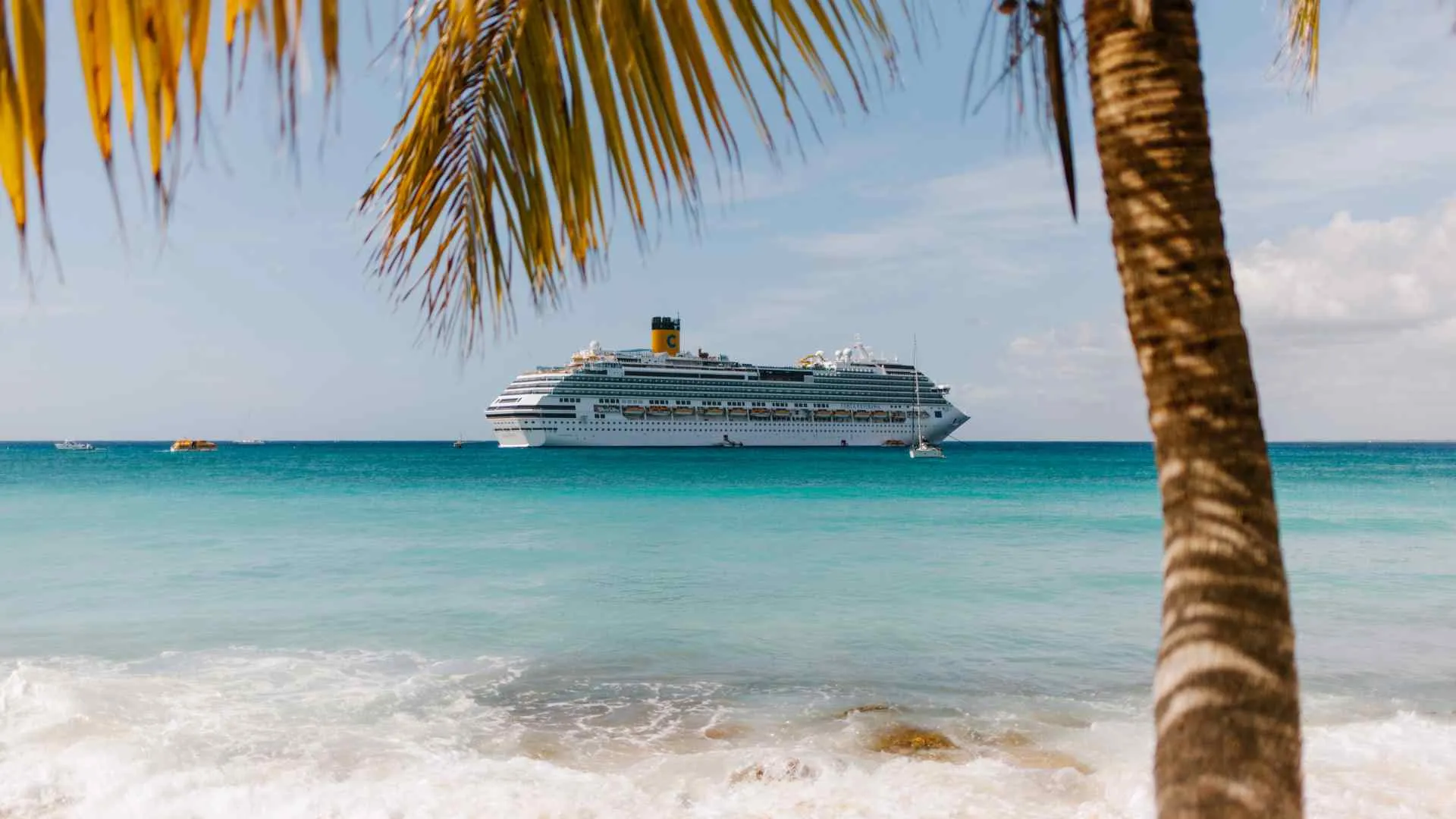
Specific Cruise Line Policies
It’s imperative to remember that cruise lines might have their set of rules which sometimes are stricter than international regulations.
Policy Variations Among Cruise Lines
Some cruise lines mandate passports for all international voyages, irrespective of the closed loop exception. Make sure to review, for example, NCL vs. Royal Caribbean‘s policies prior to departing.
This is primarily for the convenience and security of their passengers, ensuring that in case of emergencies, travelers can fly from a foreign port back to the U.S.
Children and Cruise Line Policies
While the U.S. government might allow children under 16 traveling on closed loop cruises to use other proofs of citizenship like a birth certificate, certain cruise lines might still insist on passports for younger travelers.

Changes in Itinerary Due to Unforeseen Circumstances
Nature can be unpredictable, and sometimes cruises need to change their routes due to weather conditions, mechanical issues, or global events.
Rerouted Destinations
If a cruise gets rerouted to a destination that mandates a passport for entry, having one ensures you can disembark and enjoy the alternative stop without any hassles.
In essence, while there are situations where you might be able to cruise to the Bahamas without a passport, there are definitive scenarios where having one is non-negotiable.
Always check with your cruise line, consider your travel itinerary in its entirety, and when in doubt, err on the side of caution. Addressing “do you need a passport to cruise to the Bahamas?” with a resounding “Yes, I have one!” ensures a stress-free, enjoyable voyage.

What If You Don’t Have a Passport? Alternatives and Limitations
The sun, sand, and sea might be calling, but without a passport, many would-be travelers pause, wondering about their options.
If you’re among those asking, “do you need a passport to cruise to the Bahamas?” and realize you don’t have one, don’t lose hope just yet. There are alternatives, but they come with their own set of caveats.
Birth Certificate and Government-Issued Photo ID
For U.S. citizens on closed loop cruises, one popular alternative to a passport is combining a government-issued photo ID (like a driver’s license) with an original or certified copy of a birth certificate.
Authentication of the Birth Certificate
It’s crucial to ensure that the birth certificate has a raised, embossed, impressed, or multicolored seal, along with the date it was filed with the registrar’s office (which should be within one year of birth).
Limitations of this Combination
While this duo might allow you to embark and disembark your cruise, venturing further into the Bahamas or trying to fly out could prove problematic without a passport.

Passport Card vs. Passport Book
The U.S. State Department offers a passport card, a more wallet-friendly and compact alternative to the traditional passport book.
Usability of the Passport Card
This card is valid for re-entry into the U.S. at land borders and sea ports-of-entry from Canada, Mexico, the Caribbean, and Bermuda. It’s a valid option for closed loop cruises but be aware it cannot be used for international air travel.
Cost and Convenience
A passport card is more affordable than a passport book, and its size makes it convenient. However, its limitations make it a less versatile option for more extensive international travel.
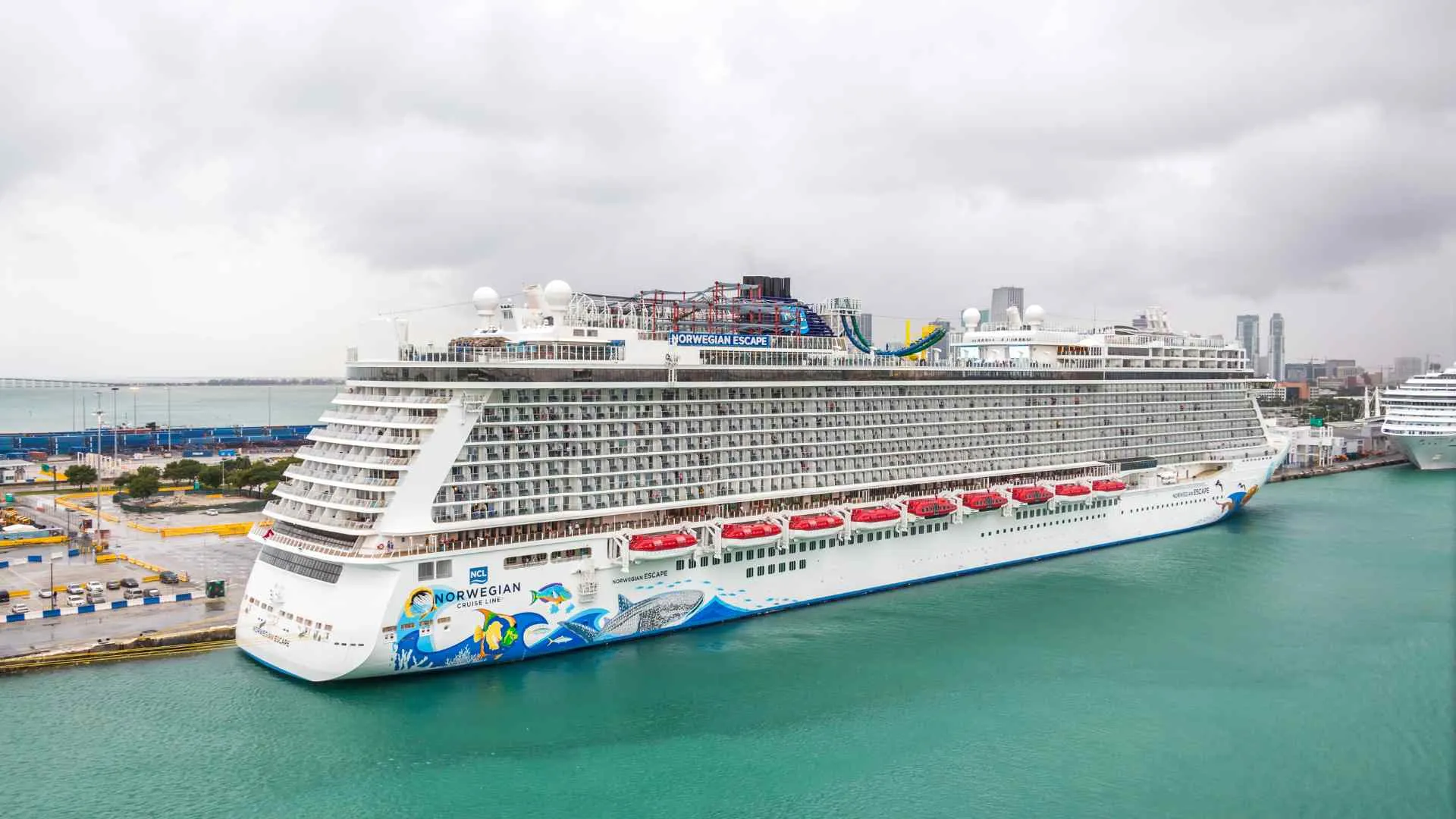
The Limitations of Traveling Without a Passport
Navigating without a passport, especially in today’s globalized world, comes with undeniable limitations.
Emergency Situations
From medical emergencies to missing your cruise’s departure, unforeseen situations might require you to fly out of the Bahamas. Without a passport, this becomes a challenging, if not impossible, task.
Enjoying the Bahamas Beyond the Port
Certain excursions or experiences might necessitate identity verification. Venturing deeper into the islands, staying at resorts, or even accessing specific tourist attractions might be restricted without proper documentation.
In a nutshell, while alternatives exist for those who don’t possess a passport, they come with a set of restrictions. When pondering, “do you need a passport to cruise to the Bahamas?”, it’s essential to weigh the pros and cons.
The alternatives might suffice for a simple, straightforward trip, but for flexibility, security, and peace of mind, a passport remains unparalleled.

Applying for a Passport: A Step-by-Step Guide
Perhaps you’ve weighed the pros and cons and decided it’s time to secure that golden ticket to global adventures: the passport.
Whether you’re pondering, “do you need a passport to cruise to the Bahamas?” or envisioning future international escapades, here’s a straightforward guide to help you navigate the passport application process.
1. Gather Necessary Documents
Before you begin, assemble all required documentation to ensure a smooth process.
Proof of U.S. Citizenship
- Certified birth certificate with a raised seal (not a photocopy)
- Previously issued, undamaged U.S. passport
- Consular Report of Birth Abroad or Certification of Birth
- Certificate of Citizenship
- Naturalization Certificate
Proof of Identity
- Valid driver’s license
- Military ID
- Government employee ID
- Current (valid) foreign passport

2. Take a Passport Photo – Dos and Don’ts
Your passport photo is a critical component of your application.
Dos
- Ensure the photo is 2 x 2 inches in size.
- Wear normal clothing (no uniforms) and appear as you typically do.
- Maintain a neutral facial expression or a natural smile.
Don’ts
- Avoid glasses, hats, or head coverings (unless worn daily for religious purposes; in such cases, submit a signed statement).
- Don’t use filters or digital alterations.
3. Fill Out the Appropriate Form
For first-time adult applicants, you’ll need to fill out Form DS-11: Application for a U.S. Passport.
Tips:
- Don’t sign the form until instructed to do so by the acceptance agent.
- You can fill the form online and print it or get a hard copy from a local passport acceptance facility.

4. Calculate the Fee
Passport fees vary based on age and the type of passport (book, card, or both). Ensure you check the current rates on the U.S. Department of State’s website or at the acceptance facility.
5. Submit Your Application
For first-time applicants, submission must be done in person at a passport acceptance facility or passport agency.
Locations:
- Post offices
- Public libraries
- Local government offices
6. Pay the Application Fee
Payment methods vary by location, so check in advance. Some facilities might accept credit or debit cards, while others might require checks or money orders.

7. Wait for Your Passport
Typically, routine processing takes 4-6 weeks, though times can vary. Expedited services (2-3 weeks) are available for an additional fee.
Tracking:
- Use the U.S. Department of State’s online system to check your application status.
8. Receive Your Passport
Your new passport will be mailed to you. In most cases, your citizenship documents (like your birth certificate) will be mailed back separately.
Applying for a passport is a straightforward, albeit detailed, process. When equipped with the right knowledge and a bit of patience, you’ll soon have the world at your fingertips.
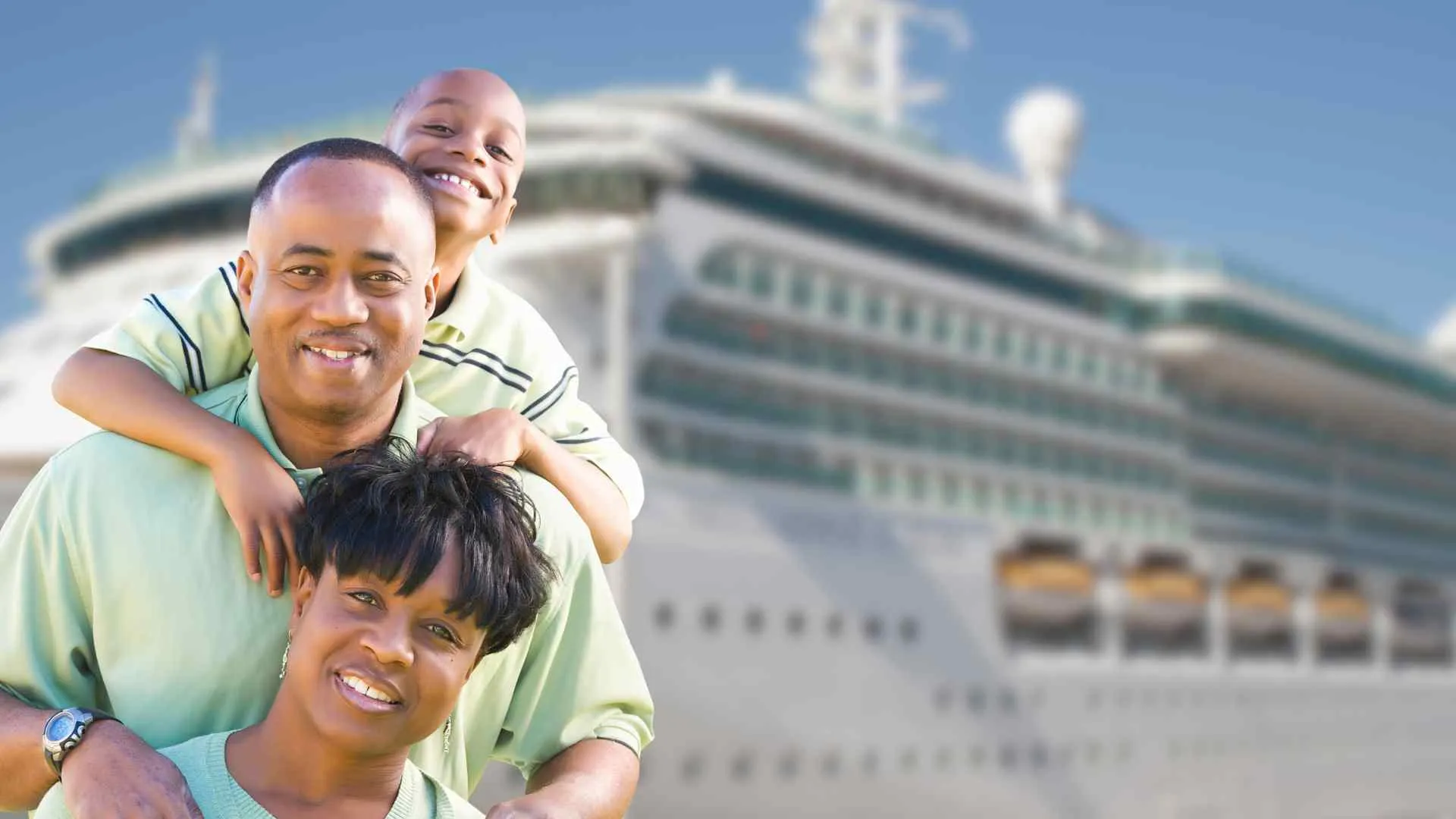
Traveling with Minors: Special Considerations
Setting sail with the family is a delightful experience. The laughter of children, the excitement in their eyes as they gaze upon new horizons, it’s all part of the joy.
But when it comes to the nitty-gritty of documentation and answering, “do you need a passport to cruise to the Bahamas?” for your little ones, there are specific nuances you should be aware of.
1. Passport Requirements for Children
Every U.S. citizen, irrespective of age, traveling internationally by air, must possess a valid passport. This includes infants.
Duration of Validity:
- For children under 16, passports are valid for 5 years.
- For those 16 and 17, passports have the regular 10-year validity.
2. Passport Application for Minors
The process for children is a tad different than for adults, especially concerning consent requirements.
In-Person Application:
- All children, regardless of age, must apply for a passport in person using Form DS-11.
Parental Consent:
- Both parents/guardians must appear in person with the child and provide consent.
- In cases where one parent cannot be present, a signed and notarized Form DS-3053: Statement of Consent should be provided.

3. Documentation Beyond the Passport
When it’s not a simple family vacation and maybe one parent is taking the child on a cruise, additional documentation might be beneficial.
Notarized Letter of Consent:
- If one parent is traveling with the child, it’s advisable to have a notarized letter of consent from the other parent, specifying travel dates, destinations, and purpose.
4. Closed Loop Cruise Considerations for Minors
For closed loop cruises, while adults might utilize the combination of a birth certificate and photo ID, children under 16 can typically use just their birth certificate to re-enter the U.S. However, having a passport for them remains the safest and most flexible option.

5. International Custody Laws
In the unfortunate scenario of custody battles or disputes, international travel with a minor can become more complex.
Awareness of Regulations:
- It’s crucial to be aware of both U.S. and foreign custody laws, especially when considering a stay beyond the cruise or if there’s a risk of disputes.
6. Child Safety and Identification
While a passport is a prime identification document, consider additional measures for child safety during travel.
ID Bracelets and Tags:
- Consider using ID bracelets or tags with emergency contact information, especially if you’re venturing into busy areas or taking part in excursions.
Traveling with minors introduces a set of special considerations, making it imperative for guardians to be well-prepared.

Travel, while exciting and enriching, can sometimes present unforeseen challenges. Recognizing these potential issues and knowing how to navigate them can make all the difference in ensuring a pleasant journey.
1. Lost or Stolen Passport While in the Bahamas
Perhaps one of the most daunting scenarios for a traveler is losing their passport in a foreign land.
Immediate Steps:
- Report the loss to the local police and obtain a police report.
- Contact the nearest U.S. Embassy or Consulate.
- Have a copy of your passport (always travel with photocopies or digital backups), which can expedite the replacement process.
Replacement:
The U.S. Embassy or Consulate can assist with obtaining a temporary passport to return home. Ensure you have additional passport photos, identification, and the police report when visiting the embassy.
2. Expired Passport – Understanding the “6-Month Rule”
Many countries have a rule requiring travelers’ passports to be valid for at least six months beyond their planned departure from the country.
Check Destination Requirements:
- While the Bahamas typically requires your passport to be valid during the duration of your stay, it’s always good practice to ensure your passport has ample validity, especially if there are other international stops.
Renewal:
If your passport is nearing its expiration, consider renewing it before traveling. This avoids complications and potential denials at borders or check-ins.

3. Damaged Passport and Its Implications
A passport that’s damaged, especially if the chip is affected or if critical details are no longer legible, might not be accepted.
Assess the Damage:
- Normal wear is typically acceptable, but significant damage like water stains, torn pages, or alterations can render a passport invalid.
Apply for a Replacement:
If you suspect your passport’s condition might be an issue, it’s best to replace it before your trip. Use Form DS-82 if eligible for a renewal or Form DS-11 for a new application.
4. Name Changes and Mismatched Documents
If you’ve recently undergone a name change due to marriage, divorce, or other reasons, ensuring your passport reflects this change is crucial.
Update Passport:
- Use Form DS-82 for name changes within a year of the passport issuance. After a year, the process might vary based on individual circumstances.
- Always travel with supporting documents, like marriage or divorce certificates, in case of discrepancies.

5. Child Custody and International Travel Concerns
For single parents or guardians traveling with a child, there might be concerns about potential abduction or custody disputes.
Documentation:
- As mentioned earlier, carry a notarized letter of consent from the other parent.
- Be aware of the Hague Convention on the Civil Aspects of International Child Abduction and its implications for member countries.
While potential issues can seem daunting, being informed and prepared is half the battle.
Addressing concerns proactively and knowing how to navigate challenges ensures that even when faced with the unexpected, travelers can continue to ask, “Where next?” instead of “What now?” on their Bahamian cruise adventure.
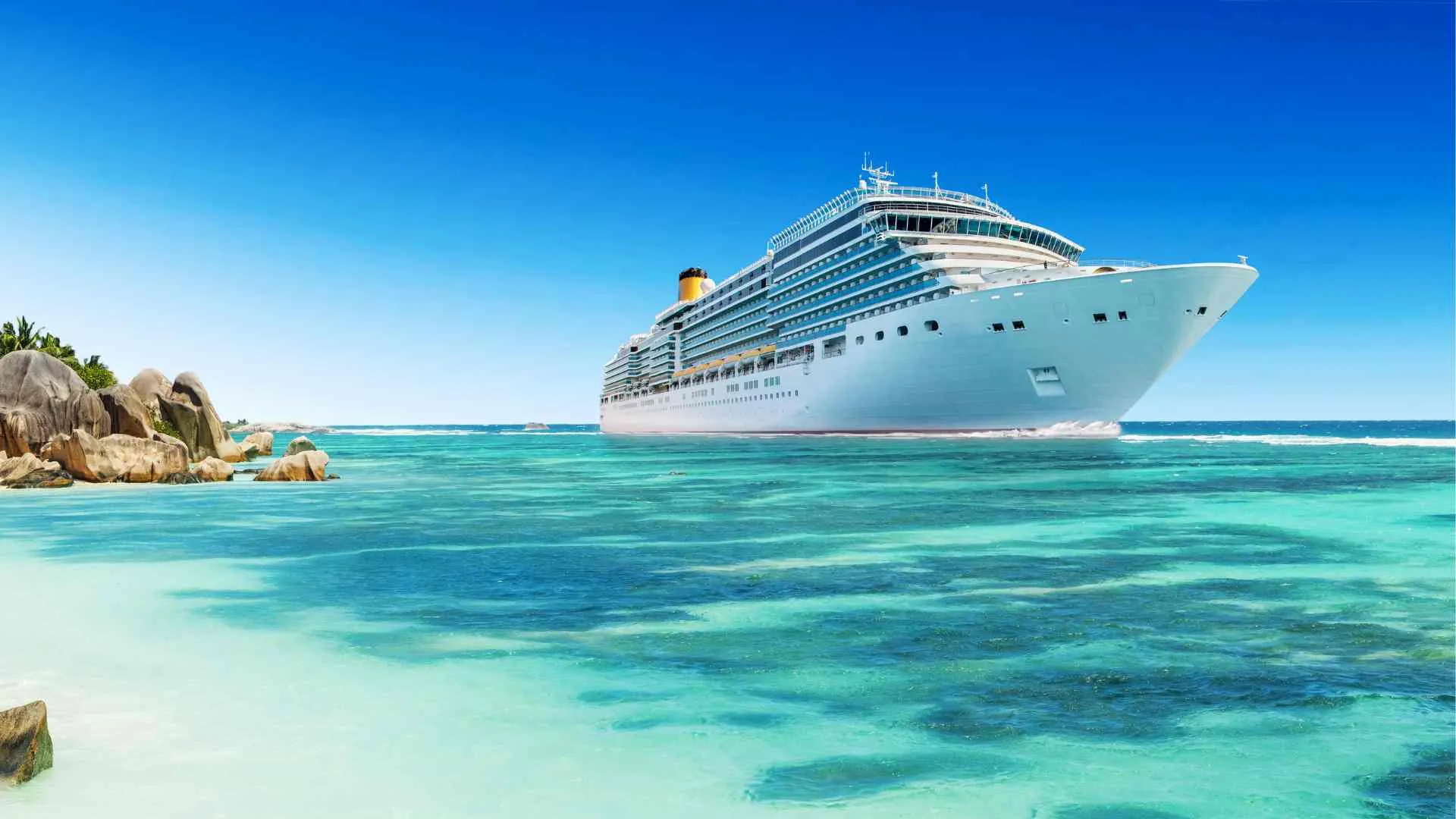
Cruise Line Policies: A Brief Overview
Each cruise line, while adhering to international regulations, can have its own set of documentation requirements.
As you seek answers to “do you need a passport to cruise to the Bahamas?”, it’s essential to consider individual cruise line policies.
Here’s a concise overview of some major cruise lines and their general passport guidelines for Bahamian cruises.
1. Carnival Cruise Line
Passport Policy: While Carnival recommends all guests travel with a passport (valid for at least six months beyond completion of travel), U.S. citizens on closed loop cruises can use a government-issued birth certificate and a supporting government-issued photo ID instead.
2. Royal Caribbean
Passport Policy: Royal Caribbean emphasizes the importance of passports but does permit U.S. citizens on closed loop cruises to the Bahamas to travel with an original or certified copy of their birth certificate and a government-issued photo ID.
3. Norwegian Cruise Line
Passport Policy: Norwegian strongly advises all guests to carry a passport with a minimum validity of six months beyond the return date. However, for closed loop cruises, they do allow the combination of a birth certificate and government-issued photo ID for U.S. citizens.
4. Disney Cruise Line
Passport Policy: Disney Cruise Line recommends passports for all its travelers, highlighting the potential complications in emergency situations without one. That said, for closed loop cruises from the U.S. to the Bahamas, U.S. citizens can use a birth certificate and a government-issued photo ID.
5. MSC Cruises
Passport Policy: MSC Cruises mandates that all its guests, irrespective of age, possess a valid passport for all its cruises, emphasizing the unpredictability of travel and the potential need to fly from foreign territories.
6. Princess Cruises
Passport Policy: Princess Cruises strongly encourages the possession of a passport for all its guests. Still, they adhere to the closed loop exception, allowing U.S. citizens to use a birth certificate and government-issued photo ID for such cruises to the Bahamas.
It’s crucial to remember that while these policies provide a general overview, they might be subject to change based on various factors. Therefore, before setting sail, it’s always recommended to check and confirm directly with your chosen cruise line.
By aligning with your cruise line’s specific policies, you ensure smooth sailing, irrespective of whether the broader question of “do you need a passport to cruise to the Bahamas?” has a definitive answer.

The Verdict: To Passport or Not to Passport for Bahamas Cruises
After exploring the labyrinth of travel requirements, potential challenges, and cruise line policies, we arrive at the ultimate question for many an eager traveler: “Do you need a passport to cruise to the Bahamas?” Let’s weigh the pros and cons and arrive at a verdict.
Pros of Having a Passport
- Universal Acceptance: A passport is the gold standard of international identification, recognized universally.
- Flexibility in Travel: Whether it’s an unplanned detour, an extended stay, or an emergency that requires flying back, a passport grants flexibility.
- Future-Proofing: Obtaining a passport now prepares you for countless future adventures, with its 10-year validity for adults.
- Peace of Mind: Traveling with a passport eliminates the guesswork and potential stress of wondering if alternative documentation will suffice.
Cons of Relying Solely on Alternatives
- Limited Travel Options: Without a passport, you’re limited to closed loop cruises and can face challenges if you need or choose to fly.
- Potential Cruise Line Discrepancies: While international regulations might allow alternatives, some cruise lines might insist on passports.
- Emergency Complications: In urgent situations requiring a return to the U.S. from the Bahamas or another country, not having a passport can lead to significant challenges.
Considering the Bigger Picture
While closed loop cruises do offer some leeway in terms of documentation, the broader spectrum of travel—be it the nature of the journey, the potential for unexpected situations, or the allure of impromptu adventures—leans heavily in favor of possessing a passport.
The Final Verdict
To Passport.
While it’s feasible to embark on a Bahamian cruise without one, the advantages of having a passport far outweigh the initial effort and investment of obtaining it. In the grand tapestry of travel experiences, it’s always better to be over-prepared than under-equipped. Safe travels!

Conclusion
Embarking on a Bahamian cruise adventure is a dream for many, but the journey’s success often lies in the details—primarily, ensuring you have the right documentation.
While the intricacies of “do you need a passport to cruise to the Bahamas?” have been unraveled, the overarching sentiment remains clear: a passport is your key to a seamless, stress-free voyage.
It’s more than just a booklet; it’s a gateway to the world, ensuring that no matter where the waves take you, you’re always ready to explore, experience, and embrace the beauty of travel. Set sail with confidence, and let the Bahamas enchant you!
FAQs on “Do You Need a Passport to Cruise to the Bahamas?”
Embarking on a Bahamian cruise raises several questions, especially concerning documentation. Here are some frequently asked questions on the topic to help you set sail with clarity.
1. Can I use a birth certificate instead of a passport for a Bahamian cruise?
Answer: Yes, U.S. citizens on closed loop cruises (those that start and end at the same U.S. port) can use an original or certified copy of their birth certificate combined with a government-issued photo ID. However, a passport is recommended for greater flexibility.
2. What if my cruise starts in the U.S. but ends in a different country?
Answer: If your cruise doesn’t qualify as a closed loop, a valid passport is typically mandatory.
3. Can children cruise to the Bahamas without a passport?
Answer: For closed loop cruises, children under 16 can usually use just their birth certificate for re-entry into the U.S. However, some cruise lines might have stricter requirements, so it’s best to check directly with them.
4. I have a passport card. Can I use it for my cruise?
Answer: Yes, the U.S. passport card can be used for entry into the U.S. at sea ports-of-entry from the Caribbean, including the Bahamas. However, it’s not valid for international air travel.
5. What if I lose my passport while in the Bahamas?
Answer: Report the loss immediately to the local police and contact the nearest U.S. Embassy or Consulate. They can assist in getting you a temporary passport for your return.
6. Do all cruise lines have the same passport requirements?
Answer: While cruise lines adhere to international regulations, individual policies can vary. Always check with your specific cruise line before departure.
7. Is there an advantage to having a passport even if I’m on a closed loop cruise?
Answer: Absolutely! Having a passport provides peace of mind, flexibility for unexpected travel changes, and preparation for any emergencies that might require flying out of the Bahamas or another country.
8. How long before my trip should I apply for a passport?
Answer: If you’re applying for a new passport, it’s recommended to do so at least 10-12 weeks before your trip, considering processing times and potential delays.
9. How much does a U.S. passport cost?
Answer: As of the last update, a new adult passport book costs $110, while for children under 16, it’s $80. There are additional fees for expedited services and other factors. It’s wise to check the U.S. Department of State’s website for the most current fee structures.
10. What if my name on the reservation doesn’t match the name on my passport?
Answer: Mismatches can cause issues. If your name has changed due to marriage, divorce, or other reasons, it’s crucial to travel with legal documentation of the name change, such as a marriage certificate or court order. However, for the smoothest experience, consider updating your passport.
11. I’m not a U.S. citizen but I reside in the U.S. Do the same rules apply to me?
Answer: Non-U.S. citizens, including permanent residents, will generally need a passport to return to both the U.S. and their home country. Always consult with the embassy of your home country and check cruise line policies for specific requirements.
12. What is the “6-Month Rule” I keep hearing about?
Answer: Many countries require your passport to be valid for at least six months beyond your date of entry. While the Bahamas typically requires it to be valid during the duration of your stay, other countries on your itinerary might enforce the 6-month rule.
13. Can I expedite my passport application if my cruise is soon?
Answer: Yes, expedited services are available for an additional fee, which can process your application within 2-3 weeks. For even faster processing, you might need to show proof of imminent travel or a life-or-death emergency.
14. What happens if I arrive at the port without the required documentation?
Answer: Unfortunately, without the necessary documentation, you’ll likely be denied boarding, and your trip could come to a premature end. Always double-check requirements well before your departure date.
15. Do I need a visa in addition to my passport for the Bahamas?
Answer: U.S. citizens on short tourist trips, like cruises, generally do not need a visa to enter the Bahamas. However, requirements can vary based on nationality and the purpose of visit.
16. Can I renew my passport onboard the cruise ship?
Answer: No, cruise ships don’t have facilities to process passport renewals. All passport-related tasks should be handled before your cruise or after you return.
17. My passport was issued when I was a child, but I’m now an adult. Do I need a new passport?
Answer: Yes, if you were under 16 when your passport was issued, you would need to apply for a new adult passport once you turn 16.
18. How safe is it to carry my passport while ashore on excursions?
Answer: It’s always a risk to carry original documents. If you don’t need it, leave it in a safe in your stateroom. If required, consider using a waterproof pouch or neck wallet and always be cautious of your surroundings.
